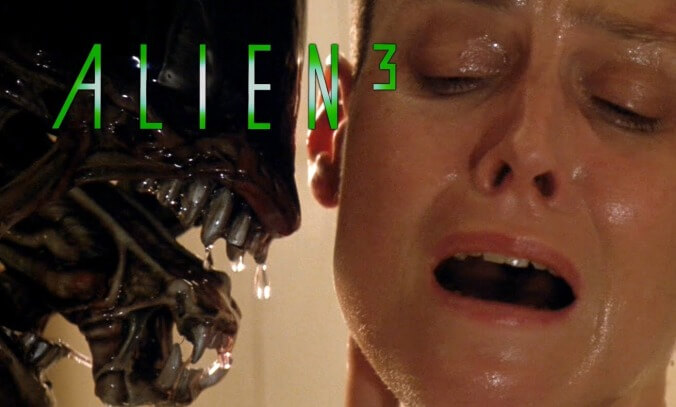Alien³ is so much better than David Fincher and its reputation insists

Watch This offers movie recommendations inspired by new releases or premieres, or occasionally our own inscrutable whims. The summer movie season is upon us, which means it’s time for a semi-annual tradition: singing the praises of the most unloved, underperforming, or simply forgotten summer blockbusters.
Alien³ (1992)
If Ridley Scott’s deep-space classic Alien and James Cameron’s superlative, action-packed Aliens were perfect genre specimens, Alien³ is something else entirely: gloriously imperfect art, bursting bloody and beautiful from the carcass of a blockbuster boondoggle. By now, the film’s troubled gestation has become the stuff of legend, a Hollywood cautionary tale. Whole screenplays, creative teams, and narrative directions were tossed out before David Fincher, then a music-video veteran with no features under his belt, landed at the helm of this doomed vessel. The director, who sparred with both the studio and star Sigourney Weaver, would end up disowning the movie. Audiences were lukewarm, resulting in lackluster box-office. Reviews were mixed at best. As far as just about everyone was concerned, Alien³ was stillborn. But the film’s flaws, the telltale signs of its tumultuous production, can’t obscure the singularity of its vision. More DOA “mistakes” of franchise extension should be so bold.
It’s no great shock that Alien³ turned off so many fans, given how cruelly it walks back the triumphant climax of Aliens. Crash-landing on a remote maximum-security prison that doubles as an ore refinery, Ripley (Weaver, hair eventually shorn to an androgynous buzzcut) awakens to discover that her surviving shipmates—including, most controversially, surrogate daughter Newt—perished during Cryosleep. That’s not the end of the bad news. An unfortunately familiar hitchhiker has made the trip, too, and Ripley’s stranded—along with a cabal of born-again felons—on an orbiting rock with no weapons or escape routes. Even by the standards of our post-Nolan blockbuster era, Alien³ is a grim event movie: Adorable little kids are autopsied, murderers and rapists are the “heroes,” and even the artificial intelligence is suicidal. (“I’d rather be nothing,” groans Lance Henriksen’s malfunctioning android Bishop during his one-scene cameo.)
But Alien³ isn’t just bracingly bleak. It’s also downright operatic: an almost biblical crucible of horror, inflated to apocalyptic proportions via composer Elliot Goldenthal’s haunting, grandiose score. In spirit, the film is closer to the claustrophobia of Scott’s original than to the slam-bang excitement of Cameron’s sequel. But it’s really its own acid-bleeding animal, strikingly shot in sickly shades, set in a cavernous locale that’s equal parts asylum and monastery, and featuring a superb supporting cast (the standouts are Charles S. Dutton as a morally ambiguous convict and Game Of Thrones’ Charles Dance as the prison doctor whose tentative romance with Ripley provides a sadly short-lived flicker of hope in this pit of despair). And while Fincher may have nothing but contempt for the end product (“To this day, no one hates it more than me,” he told The Guardian in 2009), there are clear, early flashes of his impeccable craftsmanship: An early scene that juxtaposes the cremation of Ripley’s comrades with the birth of a faster, sleeker, quadrupedal Xenomorph is a marvel of crosscutting.
It’s not, of course, an unblemished achievement. The film’s detractors (and Fincher) would be right to call out the occasional choppiness of the storytelling (a byproduct of reshoots and dropped subplots), the sometimes dodgy effects work, and the general absence of big scares. But Alien³ is as thematically rich as any film in the series. It’s a tale of absolution, as our heroine rallies a makeshift army of repentant sinners, battling her own survivor’s guilt as she wages war against the unholy beast that’s become her burden. One undercurrent of this series is the festering horror of capitalism; the real villain, one could argue, isn’t the alien but the corporation that sees the marginalized human characters—intergalactic truck drivers, space grunts, prisoners—as expendable. Alien³ redirects the franchise’s inherent critique, past the military industrial complex to the prison industrial complex.
Perhaps most potently, the film builds on the metaphoric sexual politics of its predecessors, complicating Ripley’s embrace of motherhood in Aliens and pitting her once more against a phallic extraterrestrial rapist, this time within a hostile, exclusively male environment. (There’s a disturbing intimacy to the movie’s, and arguably the series’, most iconic image: that close-up of the alien leaning into Ripley’s personal radius, as if ready to plant a very unwanted kiss.) “You’ve been in my life so long, I can’t remember anything else,” she tells her abusive extraterrestrial stalker, who’s followed her across the galaxy and—in a nasty, potent twist that shouldn’t be disclosed here—found an awful new way to entwine her fate with its own. If nothing else, Alien³ provides Ripley with an excellent (albeit temporary) swan song, the perfect conclusion to her arc: a gradual hardening of will that climaxes with a final act of bravery and affords Weaver, kickass action hero and reliable human anchor, one of her greatest emotional showcases. For her agony, anger, and resolve alone, Alien³ deserves better than its reputation as a red-headed stepchild of a blockbuster. And while we’re at it, Resurrection isn’t so bad, either.
Availability: Both the theatrical and a longer though not necessarily better “Assembly Cut”—made without Fincher’s involvement—are available through the major digital services. Alien³ can also be obtained on Blu-ray or DVD from Netflix, Amazon, or possibly your local video store/library.